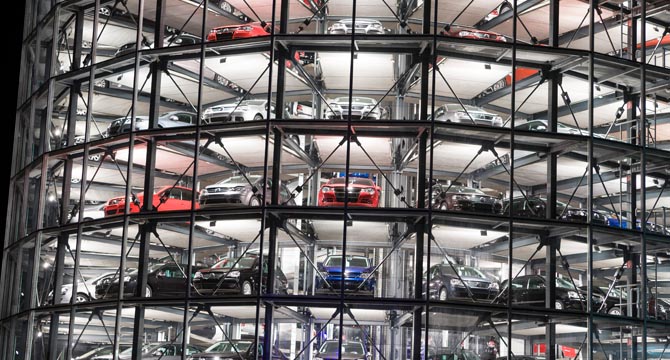Vending Machines for Cars? Automated Car Vending Expanding Around the Globe

U.S. Automaker Ford and Chinese e-commerce and technology company Alibaba are teaming up to test a new system of direct-to-consumer auto sales … via a fully automated car vending machine. In January 2018, Alibaba plans to open two car vending machines, controlled by an app. Alibaba hopes the vending machines expand its online car sales and “make buying a car as simple as a can of coke”— albeit a bit more expensive than a can of soda.
To use the automated vending machines, an Alibaba “Super Member” who qualifies via Alibaba’s Zhima Credit scoring system would take a picture of a car or scan a car on Alibaba’s app, Taobao. If the prospective buyer wants to schedule a test drive of the car, the consumer uploads a picture of themselves to utilize facial recognition technology. The consumer then heads to a “Tmall Auto” facility, which is a three story car vending machine with cars from a variety of brands. The facility recognizes the consumer via facial recognition technology and dispenses the car for a three-day test drive. The consumer can then buy the car via the app, or return the car and continue the process with other cars. The facilities are entirely unstaffed, so consumers will have no human interaction in the car buying process.
So where does Ford come in? Ford recently entered an agreement with Alibaba to explore opportunities “like artificial intelligence, cloud computing, digital marketing, and online retailing”- including in the Tmall Auto facilities. Ford will offer vehicles in the vending machines, along with other brands.
The concept is similar to U.S. auto retailer Carvana’s “Car Vending Machine”. Carvana provides a multi-story vending machine linked to Carvana’s website, but also provides on-site representatives to assist buyers. Singapore also has a 15-story car vending machine dispensing luxury cars including Ferraris and Porsches. It has yet to be seen if consumers are scrambling for opportunities to buy cars from automated machines, but the current indications are that this trend will only accelerate into the future.
